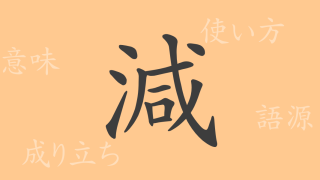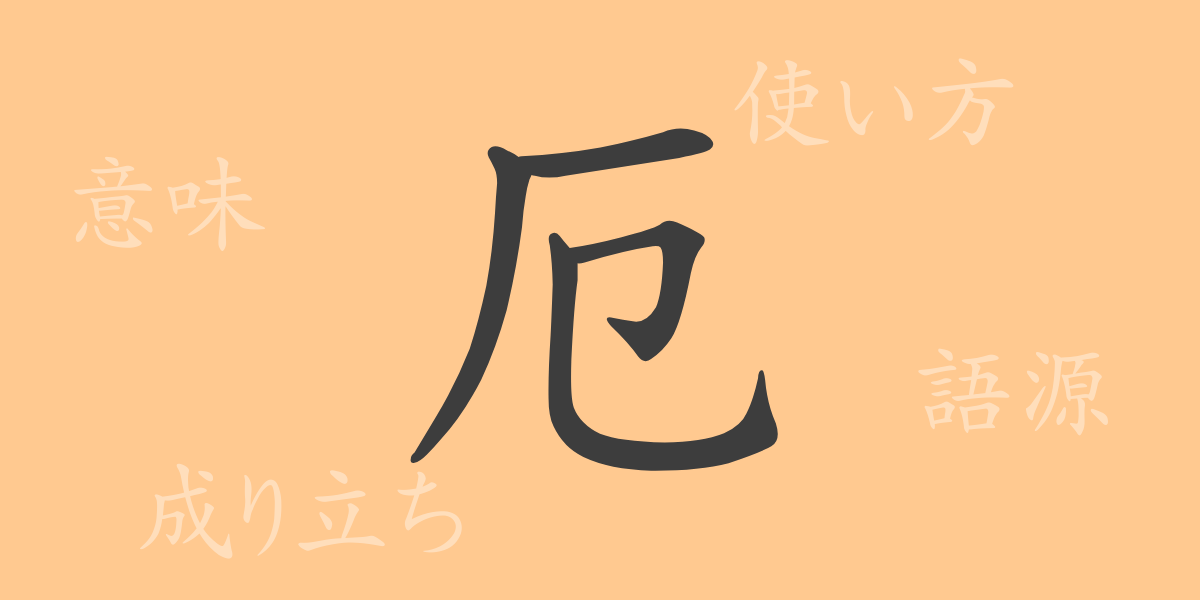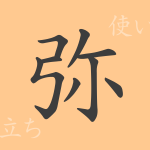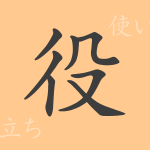Japanese culture is rich with traditional beliefs and concepts. Among them, the word “厄(yaku)” is deeply rooted in the lives of Japanese people. Many still perform “厄払い(yakubarai)” or exorcisms during significant years, highlighting its lasting influence. But what history and meaning does the kanji “厄(yaku)” hold? In this article, we will explore the origins, meanings, usage, and related idioms and proverbs of this fascinating kanji.
The Origins of 厄(yaku)
The kanji “厄(yaku)” originates from ancient China. It is a variant of the character “厭(yan),” which means to avoid bad things. In Japan, it was introduced during the Heian period and came to signify misfortune or calamity. The concept of “厄年(yakudoshi)” or unlucky years also emerged during this time, leading to the custom of “厄払い(yakubarai)” or exorcisms to ward off misfortune.
Meanings and Usage of 厄(yaku)
The kanji “厄(yaku)” generally refers to misfortune, calamity, or ominous periods or states. The term “厄年(yakudoshi)” specifically denotes years in one’s life believed to be prone to disasters, prompting many Japanese to visit shrines for “厄払い(yakubarai)” ceremonies. In everyday conversation, it appears in words like “厄介(yakkai),” meaning troublesome situations or people.
Reading, Stroke Count, and Radical of 厄(yaku)
The kanji “厄(yaku)” has distinct readings and components:
- Reading: On’yomi (音読み) is “エキ(eki),” with no specific Kun’yomi (訓読み).
- Stroke Count: It consists of 4 strokes.
- Radical: The radical is “厂” (gandare).
Idioms, Proverbs, and Phrases Using 厄(yaku)
There are numerous idioms, proverbs, and phrases in Japanese that include “厄(yaku).” Here are a few examples:
- 厄年(yakudoshi): Specific ages believed to be prone to misfortune.
- 厄払い(yakubarai): Rituals to ward off misfortune.
- 厄介(yakkai): Troublesome matters or people.
- 厄介払い(yakkaibarai): Avoiding troublesome matters or people.
- 厄日(yakubi): Days believed to be prone to calamity.
These idioms and proverbs are commonly used in daily life and culture, underscoring the deep-seated belief in avoiding “厄(yaku)” or misfortune.
Conclusion on 厄(yaku)
The kanji “厄(yaku)” is more than just a character; it is an integral part of Japanese culture. While it carries negative connotations of misfortune and calamity, it also symbolizes actions taken to ward off these negative influences. Customs like “厄年(yakudoshi)” and “厄払い(yakubarai)” reflect traditional practices aimed at ensuring a prosperous year, and their significance remains undiminished in modern times. Through this article, we hope you have gained a deeper understanding of the meaning and cultural background of “厄(yaku),” offering a new perspective on Japanese traditions.

























